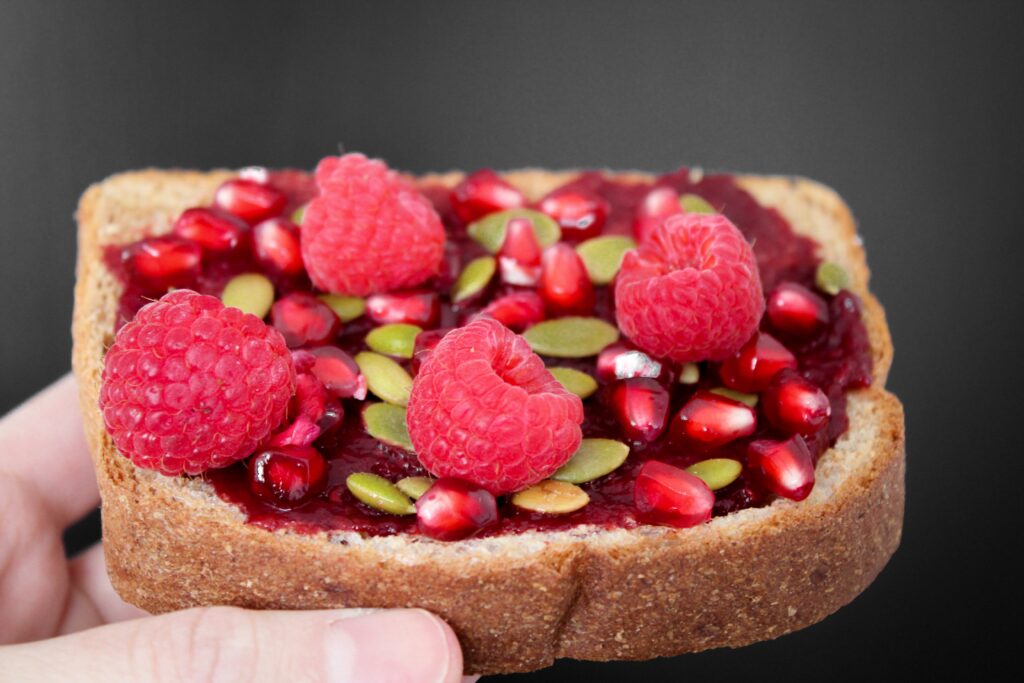
Beat the Bloat:
Nurturing Your Gut for a Happier, Healthier You!
Ever felt like you’re carrying a food baby? Well, you’re not alone! Bloating is a common gut grievance that can make your jeans feel like they’ve shrunk two sizes overnight. But fear not, my fellow bloat battlers, because your gut health is about to get a major upgrade. Let’s dive into the world of gut health and gut bacteria and discover natural ways to achieve a happier gut, without adding “gut-worrying” to your already packed to-do list.
The Gut: A Bustling Metropolis Within
Imagine your gut as a bustling city, home to trillions of bacteria (the good, the bad, and the downright helpful). This metropolis works 24/7 to digest food, absorb nutrients, and keep invaders at bay. The key to a thriving gut city? Diversity and balance among its bacterial citizens. The gut, often referred to as the “second brain” of the human body, is a fascinating and complex ecosystem, much like a bustling metropolis teeming with life and activity. This comparison isn’t just a poetic one; it’s rooted in the intricate and dynamic interplay of countless microorganisms that reside within our gastrointestinal tract.
The gut microbiome plays a crucial role in the body’s economy by breaking down food components that the human body cannot digest on its own, such as certain fibers, and converting them into vital nutrients and energy. Short-chain fatty acids (SCFAs), produced by the fermentation of fiber by gut bacteria, serve as a primary energy source for colon cells and have anti-inflammatory effects.


Science Says: A Healthy Gut Equals a Happy You
Research shows that a balanced gut microbiome supports not just digestion, but your immune system, heart health, brain health, mood, sleep, and even your skin. It’s like the central hub of your well-being!
The gut communicates with the brain through the gut-brain axis, a complex network involving hormonal, immunological, and neural signaling pathways. This communication network influences not just digestive functions but also emotions and cognitive processes.
The Culprits Behind the Bloat-
Following are the few factors that contributes to the bloating and messing with our gut health.
- Overindulgence in Processed Foods: These are the gut’s nemesis, often leading to an imbalance in gut bacteria.
- Not Enough Fiber: Fiber is the gut bacteria’s favorite food. Low intake can slow down digestion, leading to… you guessed it, bloating.
- Dehydration: Without enough water, your digestive system can’t move things along smoothly.
- High Salt Intake: Consuming too much salt can lead to water retention in the body, contributing to a bloated feeling. Many processed and packaged foods are high in sodium, so it’s easy to consume more salt than you realize.
- Hormonal Fluctuations : Women may experience bloating as part of their menstrual cycle due to hormonal fluctuations, particularly in the days leading up to menstruation. This is due to changes in estrogen and progesterone levels, which can influence fluid retention.
- Stress : Stress can significantly impact gut health, leading to a range of complications and contributing to various digestive disorders. The intricate connection between the brain and the gut, known as the gut-brain axis, plays a crucial role in regulating digestion, immune function, and overall well-being. When stress disrupts this delicate balance, it can have profound effects on gut health and contribute to the development or exacerbation of digestive issues.



- Stress-induced imbalance can lead to inflammation and gastrointestinal disorders like IBS and IBD. Chronic stress compromises the intestinal barrier, causing “leaky gut” and allowing toxins into the bloodstream, triggering inflammation and autoimmune responses. Stress also disrupts gut motility, leading to symptoms like constipation, diarrhea, and bloating. Moreover, it impairs digestion and nutrient absorption, potentially leading to deficiencies and weakened immunity.
- Antibiotics and Medications: While necessary for treating infections, antibiotics can also harm beneficial gut bacteria. Other medications, like NSAIDs and proton pump inhibitors, can affect gut health.
- Lack of Physical Activity: Sedentary lifestyles can negatively affect gut health by reducing the diversity of gut microbiota. Regular physical activity is linked to increased microbial diversity, which is beneficial for gut health.
- Genetics: Genetic predispositions can influence the composition of gut microbiota and susceptibility to certain gut-related health conditions.
- Age: The diversity of gut microbiota changes with age, often decreasing in elderly individuals, which can affect overall gut health.
Natural Gut-Healing Tactics
- Emphasize Fiber-Rich Foods: Incorporate a variety of fruits, vegetables, whole grains, legumes, and nuts into your diet. Dietary fiber promotes the growth of beneficial gut bacteria and supports regular bowel movements. Superfoods like chia seeds, flax meal, avocados can provide extra fiber to your daily requirement.
- Hydrate, Hydrate, Hydrate: Keep things flowing by drinking plenty of water throughout the day.
- Probiotic Power: Foods like yogurt, kefir, sauerkraut, and kombucha add beneficial bacteria to your gut. These foods introduce beneficial bacteria to the gut, helping to maintain or restore a healthy microbiota balance.



- Prebiotic Proficiency: Foods rich in prebiotics, such as garlic, onions, bananas, and asparagus, provide “food” for beneficial gut bacteria, promoting their growth and activity
- Diversify Your Diet: A varied diet can enhance microbial diversity, which is associated with better gut health and a lower risk of chronic diseases.
- Limit Processed Foods and Sugars: Reducing intake of highly processed foods and added sugars can decrease the growth of harmful bacteria and support overall gut health.
- Oral Probiotic Supplements: Including oral probiotic supplements in your routine can be an effective strategy to enhance gut health, alongside consuming probiotic-rich foods. These supplements provide a concentrated dose of beneficial bacteria, which can help restore and maintain a healthy balance in the gut microbiome.
For the Busy Bees: Integrating Gut Health into Your Daily Hustle
- Breakfast: Start with a yogurt parfait or a smoothie with banana, spinach, and a scoop of fiber-rich flaxseeds.
- Snack Time: Crunch on carrots with hummus or an apple with almond butter for a fiber boost.
- Lunch & Dinner: Include at least two types of vegetables with your meals. Think a salad with mixed greens, cucumber, and chickpeas, or a stir-fry with broccoli, carrots, and quinoa.
- Hydration Station: Carry a water bottle everywhere. Add a splash of lemon or cucumber for an extra refreshing zing.
- Mindful Munching: Eating slowly and chewing well can also help reduce bloating and improve digestion.
- Fermented Foods: Rich in probiotics, particularly strains of Lactobacillus and Bifidobacterium, yogurt is a staple fermented food that supports digestive health. Opt for natural, unsweetened varieties to avoid added sugars. Other foods like Sauerkraut, Miso, Pickles, Kimchi, Tempeh, Kombucha, Pickles etc can also be included in the diet .

Embrace the Bloat-Free Lifestyle
Remember, Rome wasn’t built in a day, and neither is a healthy gut. Small, consistent changes can lead to big results. Gut health is influenced by a complex interplay of external and internal factors. By understanding these influences and adopting good eating practices, we can support our gut microbiome and enhance our overall health. While diet plays a crucial role in maintaining gut health, lifestyle factors like managing stress, avoiding excessive alcohol and smoking, and maintaining an active lifestyle are equally important. Always consider consulting healthcare professionals or dietitians for personalized advice, especially if you have existing health conditions or dietary restrictions.By making these gut-friendly foods a staple in your diet, you’ll not only beat the bloat but also support your overall health and well-being. So, here’s to happy guts and unbuttoned jeans after every meal (just kidding, or am I?).
Cheers to a bloat-free, gut-happy life! 🌱
Plant Based Holistic Probiotic Gummies.
Boost Immunity and Gut Health with probiotic gummies.
Please note that some of the links in this post are affiliate links. This means that if you click on the link and purchase the item, I will receive a small commission at no additional cost to you. As an Amazon Associate, I earn from qualifying purchases. I only recommend products and services that I believe will add value to my readers. Thank you for your support!




